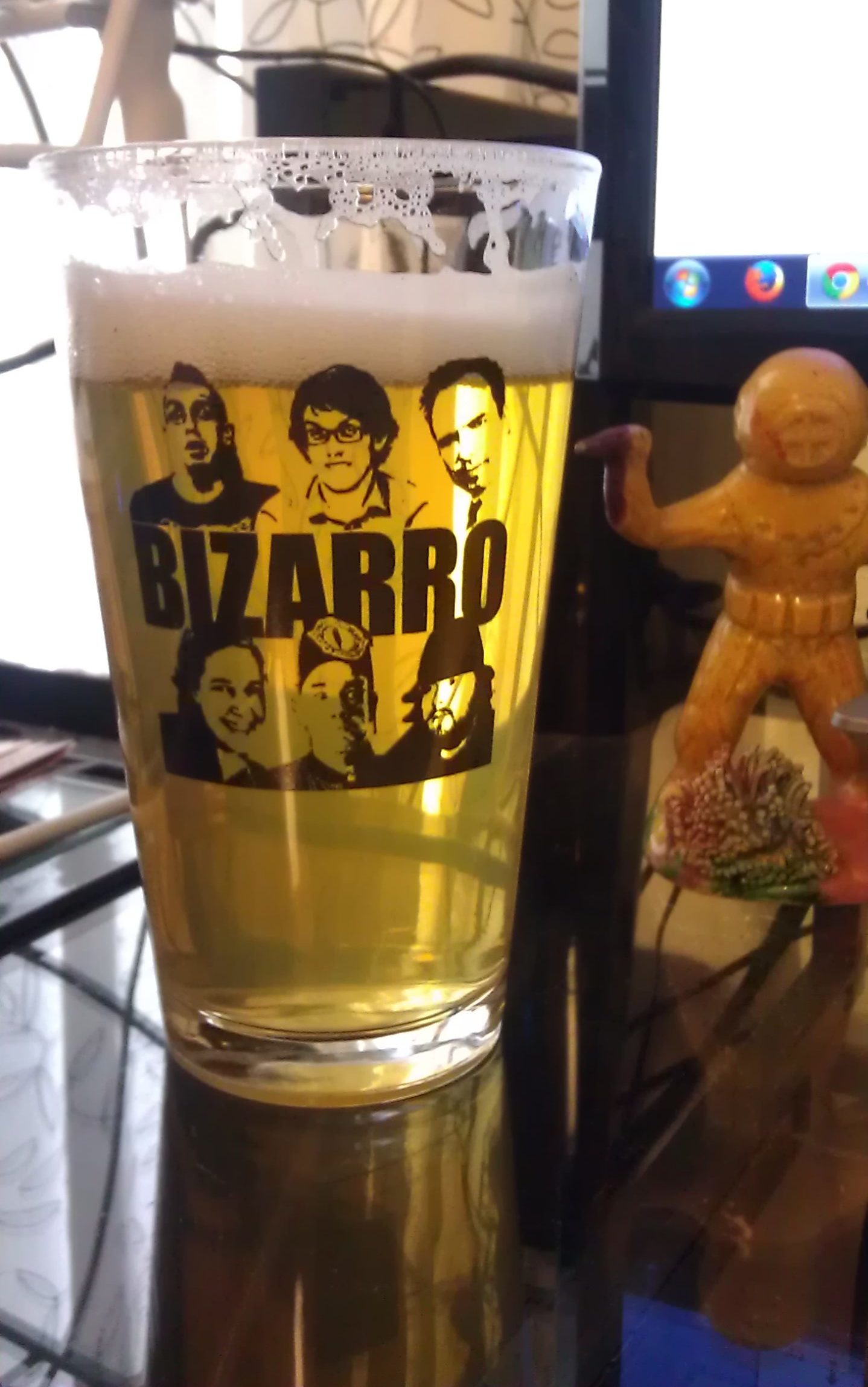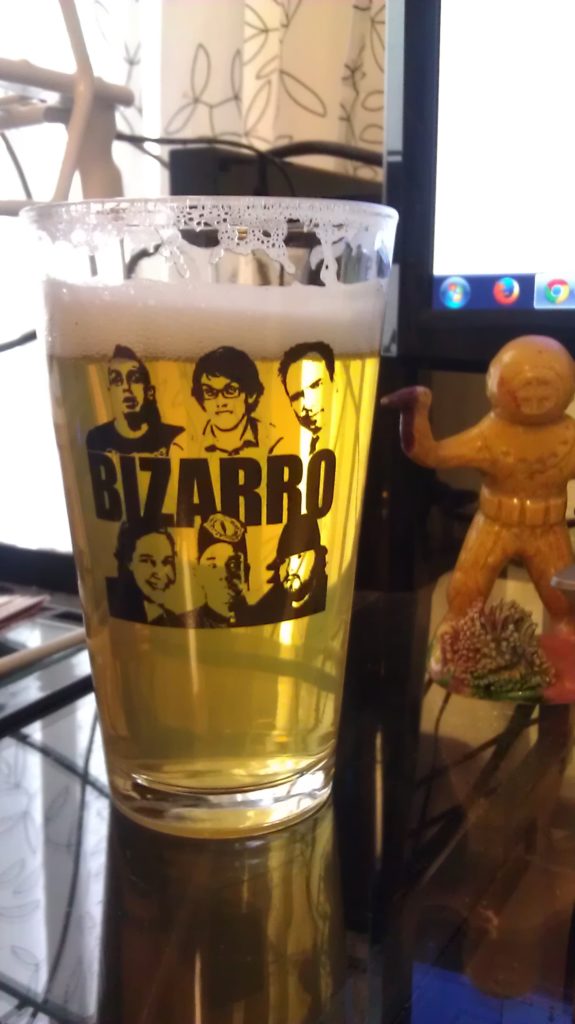
By Amanda Billings

Today’s post is brought to you by Accumulation, New Belgium’s seasonal white IPA, which is best served at 55 degrees Fahrenheit in a Bizarro pint glass.
In my waking 9-5 life, I get to talk with 18-year-old English majors about what they want to be when they grow up. It’s not surprising that many of them write and want writing to remain an important part of their lives, whatever they end up doing. What is surprising, though, is that almost none of them use the word “writer” when describing themselves or their goals. They all want to be “authors.” In between discussions of math requirements and roommate drama, I’ve managed to better understand this distinction between “author” and “writer”:
Authors:
· Have published novels, story collections, memoirs, and/or poetry collections
· Have made significant money off of said publications
· Are widely read and recognized as pillars of artistic brilliance
· Do not have any other type of employment, as they author full-time
Writers:
· Are, at best, romantic starving figures who hang around 24-hour coffee shops without a care in the world for health insurance or student loan payments, or regular showers
· Are, at worst, liars who have never published anything (Unless you count fan fiction posted online. Which doesn’t count. Right?)
· Exist as an embarrassing starting point toward the end-goal of author-dom
I don’t remember ever having such a dramatic distinction between “authors” and “writers,” but I have been guilty of making similar arbitrary delineations. I mean, there are writers and then there are writers, right? Some people say they are writers, but other people—well, they just are.
Of course, this skepticism of what makes someone a writer has always really been a second-guessing of myself. If I don’t write every day, I can’t call myself a writer, can I? If I’ve never been published, I couldn’t really be a writer yet. If my book doesn’t sell well enough or get good reviews, then everyone will know that I’m not really a writer—they’ll find out I’ve just been faking it. This insecurity is part of my broader embarrassment about being alive, an anxious knee-jerk apology for taking up anyone’s time or space. When someone has the gall to call themselves a writer, without an asterisk, I’ve been tempted in the past to write it off as an act of hubris rather than recognize it as an act of bravery. Advocating for yourself by embracing your own art is frightening because it insists that you are a person who has something valuable to offer—and that offer invites some kind of relationship between you, your work, and your audience. It’s a relationship that you long for and can’t control. It’s terrifying.
Regardless of your own personal anxiety levels, we’ve all known some kind of self-doubt when it comes to our art. When I had my first publication, it felt like a fluke. When I had a few more, I was sure no one would read them. Now I have my first book out, and I still feel like I’m waiting for someone to knock me off this unsteady ledge that lets me call myself a writer (without an asterisk). Because if I can’t call myself a writer, then what has all this work been for? If you can’t call yourself an artist, if you can’t own your talents and dreams and ambitions, then how can you ever achieve them?
So think about the kind of artist you want to be. What kind of art do you want to create, and how can you move toward that goal? For me, it comes back to that terrifying invitation between the artist and the audience. Writing is valuable for me because of that hope for connection—it’s what I’m looking for as a reader, too. When you recognize yourself in a passage of someone else’s writing, it’s like reaching out to touch initials carved in a spot where someone else stood a long time ago. It lets you know that you’re not moving through all the absurd thoughts and feelings and experiences of being alive alone.
That’s the kind of writer I want to be, and it doesn’t matter whether it’s the right kind of writer or not. Your artistic goals may vary, but you should never apologize for them. Set goals for yourself as an artist, be uncompromising as an artist, embrace failures as an artist—but first, allow yourself to be an artist. It takes more courage than it looks.
Amanda Billings is a writer living in Fort Collins, CO. Her first book, 8-Bit Apocalypse, is part of the 2013 New Bizarro Author Series.
This post may contain affiliate links. Further details, including how this supports the bizarro community, may be found on our disclosure page.

